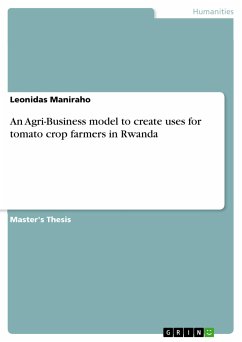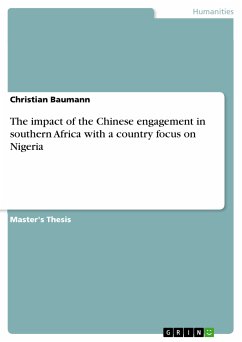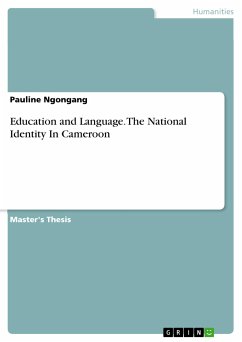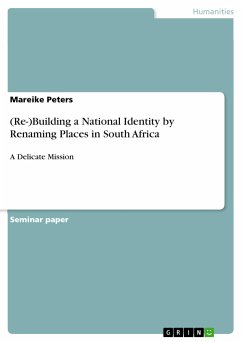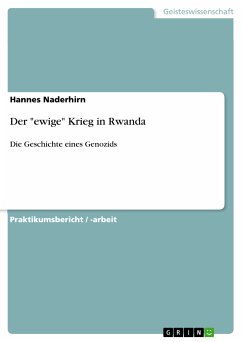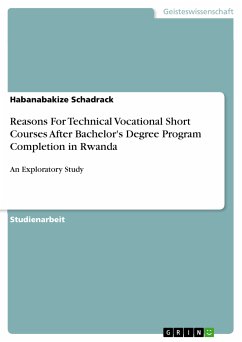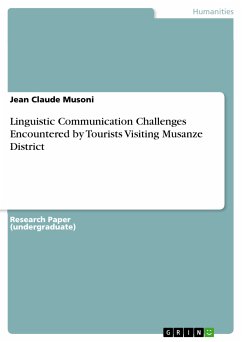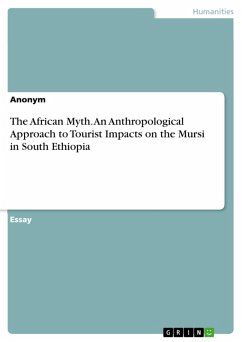Master's Thesis from the year 2021 in the subject African Studies - Culture and Applied Geography, grade: 1, , language: English, abstract: The goal of this research is to create an agri-business model to create uses for tomato crop farmers in Rwanda. This study places special focus on addressing the lack of value addition in tomato crop farm leftovers and investigates the current state of farm leftover utilization as a method of dealing with tomato cultivation difficulties as well as related issues. The research study used an exploratory mixed-method research design and the researcher interviewed and surveyed specified and identified tomato farmers as well as trainers/lecturers and other who are involved in horticulture sector using structured instrument, validated from previous pilot study. A total of 64 individuals were selected. Respondents recorded, transcribed, and verified the interview data for the research. The data was subsequently analyzed using NVIVO12 analytic software, which resulted in the establishment of data-driven prominent themes and in inclusion of important themes while the survey data from the spreadsheet was in conversion model to provide statistical data. As a result, agricultural farm leftovers are produced in significant numbers each year. The most frequent crop farm wastes are stems and leaves, although roots may also be discovered in tomato fields. The bulk of tomato crop residue is allowed in fields to decay naturally, while some are kept for mulch and animal feed. The study's findings indicated that farmers make no more money, no matter what they do with tomato crop farm leftovers. Composting can generate some income for them, but it is not done properly. The major reasons for tomato crop farm leftovers not being turned into other valuable crop-based goods include farmers' lack of knowledge and skills in tomato crop value addition, as well as a lack of farmer-academia collaboration. The technical requirements revealed in the results are mentorship and training in value addition, particularly in tomato residue value-added, as well as training of trainers in modern farming; however, compost manufacturing, value chain development, modern farming technologies, post-harvest technology and handling, and value addition are the most important for tomato farmers. These findings fuelled the development of several options, but the construction of a farmer field school for composting tomato crop farm leftovers was the most conservative, safe, and risk-averse option as an agribusiness model for collaboration.
Dieser Download kann aus rechtlichen Gründen nur mit Rechnungsadresse in A, B, BG, CY, CZ, D, DK, EW, E, FIN, F, GR, HR, H, IRL, I, LT, L, LR, M, NL, PL, P, R, S, SLO, SK ausgeliefert werden.

